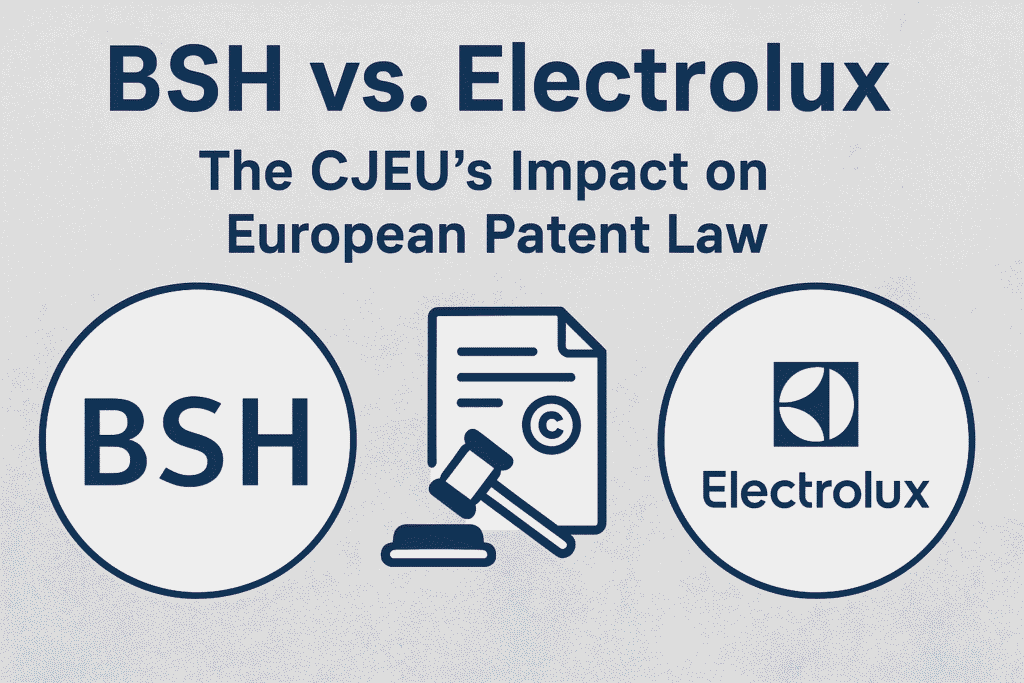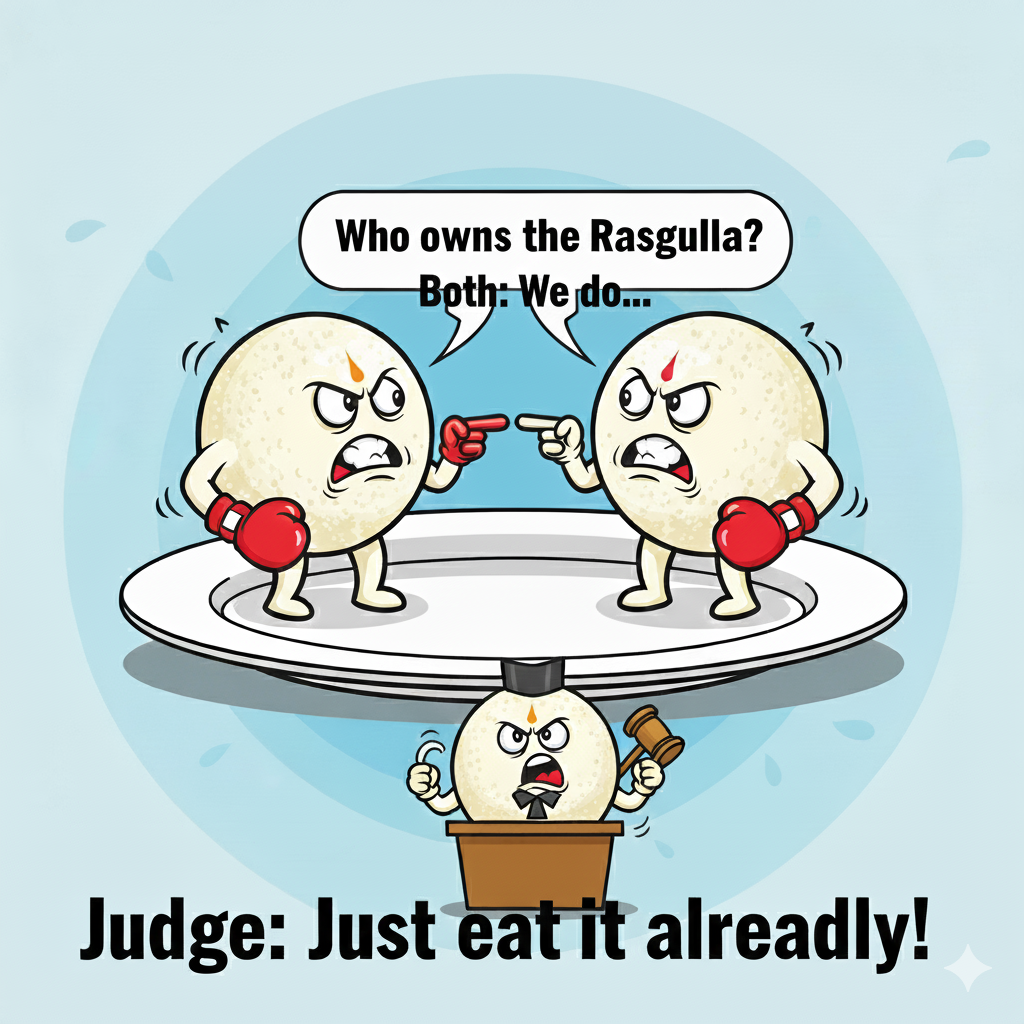The ongoing legal battle between BSH Hausgeräte and Electrolux has reached a critical second round at the Court of Justice of the European Union (CJEU), with a recent judgment that significantly alters the landscape of patent litigation in Europe. The core of this complex dispute centers on a fundamental question of jurisdiction:
can a national court hear a patent infringement case for a European patent’s designations in multiple countries, especially when the patent’s validity is challenged?
Background of the case
The conflict began when BSH Hausgeräte, a German company, sued the Swedish company Electrolux for patent infringement in a Swedish court. BSH claimed that Electrolux had infringed on a European patent for a vacuum cleaner technology, and it sought damages not just for the infringement in Sweden, but for all countries where the patent was in force. Electrolux, in turn, challenged the validity of the patent, arguing that the Swedish court lacked jurisdiction to rule on the validity of patents registered in other European Union member states.
Traditionally, European law, under the Brussels I Regulation, has held that only the court of the country where a patent is registered has the exclusive jurisdiction to rule on its validity. This principle was intended to prevent conflicting judgments across the EU. The initial Swedish court sided with Electrolux, ruling that since the validity of the foreign patents was now in question, only the courts of those respective countries could hear the case. This “reflexive effect” meant the Swedish court lost jurisdiction.
The CJEU’s Pivotal Ruling
In its recent judgment, the CJEU took a decisive step that redefines this precedent. The court ruled that a national court, which has jurisdiction over a defendant based on their domicile (in this case, Sweden), does not lose its ability to hear a patent infringement claim even if the defendant challenges the validity of a patent registered in another EU country.
The CJEU’s reasoning hinges on a narrow interpretation of the Brussels I Regulation’s “exclusive jurisdiction“ clause. The court clarified that this clause applies solely to direct actions concerning a patent’s registration or validity, not to infringement cases where validity is raised as a defence. While the national court cannot make a binding ruling on the validity of a patent in another state, it can still proceed with the infringement case. This means the court can assess the infringement claim and, if necessary, may choose to stay the proceedings until a validity decision is made by the appropriate national court.
The Core of the Dispute
At its heart, the legal battle is a jurisdictional one. It’s not just about whether Electrolux infringed on BSH’s patent; it’s about which court has the authority to decide the matter, and to what extent. The case revolves around two key provisions of the Brussels I Regulation:
- Article 4: This rule states that a defendant should be sued in the courts of the Member State where they are domiciled. Since Electrolux is a Swedish company, BSH was correct to file the lawsuit in a Swedish court.
- Article 24(4): This rule grants exclusive jurisdiction to the courts of the Member State where a patent (or other registered right) is deposited or registered, specifically for proceedings “concerned with the registration or validity” of that right.
The central conflict arose because Electrolux, in its defence against the infringement claim in Sweden, challenged the validity of the patent in the other European countries. The Swedish court initially interpreted Article 24(4) broadly, ruling that since the validity of the foreign patents was now in question, only the courts of those respective countries could hear the case. This “reflexive effect” meant the Swedish court lost jurisdiction.
The CJEU’s Alternative Path
The CJEU’s recent judgment, often described as finding a “third way,” rejects this broad interpretation. The Court’s reasoning is both nuanced and pragmatic:
- Infringement vs. Validity: The Court drew a crucial distinction between an infringement action and a direct challenge to a patent’s validity. While a defendant may raise validity as a defence, it doesn’t change the nature of the primary action, which remains an infringement claim. The exclusive jurisdiction rule of Article 24(4) only applies when the very subject matter of the legal proceedings is the validity or registration of the patent.
- Limited Effect: The ruling allows the national court to proceed with the infringement case, but any finding it makes on validity is limited. It’s an “inter partes“ (between the parties) finding, meaning it does not affect the patent’s official legal status or the patent register in the other country. Only the courts of the country where the patent is registered can make a definitive, “erga omnes” (against all) ruling that a patent is invalid.
This interpretation prevents a defendant from derailing a multi-jurisdictional infringement lawsuit by simply raising a validity defence. It allows the plaintiff to enforce its patent rights efficiently across borders.
Wider Implications for Patent Law
The ripple effects of this decision are significant:
- The Unified Patent Court (UPC): The UPC is a new, single court for patent disputes across participating EU member states. The CJEU’s ruling reinforces the UPC’s jurisdiction, allowing it to handle infringement claims for patents across the UPC territory even if validity is contested. This makes the UPC a very attractive venue for patentees.
- Non-EU Countries: The ruling also clarified that Article 24(4) does not apply to patents in non-EU countries (like the UK, Switzerland, or the United States). This means a national EU court can hear an infringement case involving a non-EU patent and even assess its validity for the purposes of the case, as long as it has jurisdiction over the defendant. This is a radical change that could lead to more global patent litigation being heard in EU courts.
In essence, the CJEU’s decision prioritizes procedural efficiency and legal certainty for patent holders. It makes it harder for defendants to use a technicality to fragment a lawsuit, thereby strengthening the enforcement of intellectual property rights across the European Union and beyond.
How Logicize IP Can Help
In this new, complex legal environment, navigating cross-border patent disputes requires sophisticated expertise. Logicize IP is well-equipped to assist companies in understanding and leveraging the implications of the BSH v. Electrolux ruling.
- Strategic Planning: We can help you devise a strategic approach to patent enforcement, including which national courts or the UPC may be the most advantageous forums for your specific case. We can analyse the strengths of your patent portfolio and advise on the most effective way to consolidate infringement claims.
- Case Management: Our team can manage the complexities of multi-jurisdictional litigation, ensuring that your case is handled efficiently and without the delays caused by jurisdictional challenges.
- Legal Expertise: We provide in-depth legal analysis on how the CJEU’s ruling affects your patents, particularly those in non-EU countries. We will work to ensure your legal strategy is robust and aligned with the latest developments in European IP law.
Whether you are a patent holder seeking to enforce your rights or a company facing a potential infringement claim, understanding the shifting legal landscape is crucial. Our expertise can help you turn these complex legal developments into a strategic advantage.
References
- Judgment of the Court (Grand Chamber) of 25 February 2025, Case C-339/22, BSH Hausgeräte GmbH v. Electrolux AB, ECLI:EU:C:2025:108.
- Regulation (EU) No 1215/2012 of the European Parliament and of the Council of 12 December 2012 on jurisdiction and the recognition and enforcement of judgments in civil and commercial matters (recast).
- Judgment of the Court of Justice of 13 July 2006, Case C-4/03, Gesellschaft für Antriebstechnik mbH & Co KG v. Lamellen und Kupplungsbau Beteiligungs KG (LuK), ECLI:EU:C:2006:442.







